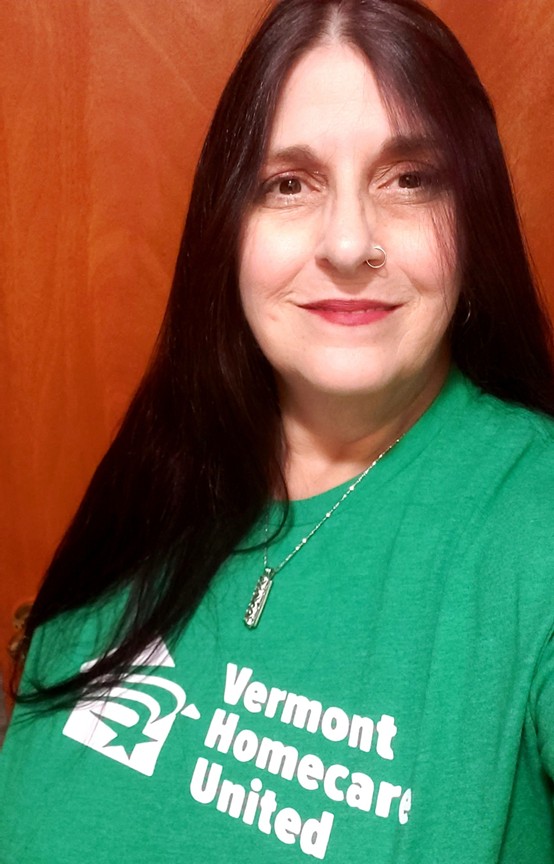
Vermont home care worker Heather Pfaff stays up at night worrying about the skyrocketing cost of her health care, which she gets through the Affordable Care Act (ACA) marketplace.
For more than 15 years, Pfaff has been the sole care provider for her wheelchair-bound mom, who requires specialty care that’s unavailable at nursing homes. Pfaff herself suffers from many chronic conditions and is on several expensive medications.
Pfaff says that if Congress doesn’t act now to lower health care costs and extend ACA premium tax credits, she and her mom will be financially ruined. They will lose their home and their dignity.
Pfaff, a member of Vermont Homecare United/AFSCME, says the anxiety over not being able to afford health care is wreaking havoc on her.
“It’s actually caused me to take anxiety medications. I’m in such a panic that I can’t sleep at night,” says Pfaff. “In the quiet moments when you’re lying there thinking about all this stuff — it’s terrifying. We’re living paycheck to paycheck. Any rise in costs would devastate us.”
Pfaff says the decision by anti-worker lawmakers to force the government to shut down to protect billionaire tax breaks rather than lower the cost of health care and fund public services is “unconscionable.”
She has already gotten several notices about her health care premiums increasing. This comes on top of looming cuts to Medicaid that were included in the so-called “Big Beautiful Bill,” which could cut her hours and income as a home care provider.
Pfaff is one of more than 20 million Americans who gets health insurance through the ACA marketplace who will see their premiums more than double if Congress doesn’t act.
“I broke out in tears,” says Pfaff, who is scrambling to get clear answers from the hospital where she receives care about how to pay for her health care. “They make it so confusing.”
Pfaff suffers from asthma, COPD, scoliosis and other conditions.
“They have navigators that work at the hospital. They walk through the plans that are available to you. They try to help you pick based on your needs what plan would be best for you. I’m meeting with them on Thursday,” says Pfaff.
“They haven’t told us yet how much our premiums will go up. I’m in total panic right now. I’m going to walk into this meeting and they’re going to tell me what the cost is going to be and I’m going to have to walk out with no insurance.”
Pfaff’s message to Congress is simple.
“Think about what you’re doing. Think about millions of people who need their health care, who need to be able to put food on the table and pay their rent. Think about that and think about the fact that people will die. Needlessly.”
Pfaff is urging other AFSCME members to make their voices heard to demand Congress lower health care costs, fund public services and protect workers.
